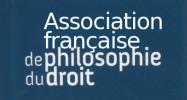Paper's abstract
Bernard
Reber,
Moral Pluralism: Values, Beliefs and Moral Theorie
After a presentation of the various meanings of the notion of pluralism, this article tackles the specific issue of moral pluralism and its different versions. The first one, which is more frequent, concerns value pluralism. J. Kekes and G. Crowder notably present it. It distinguishes between values on various as-pects: incommensurability, incompatibility, conditional or on the contrary overriding, primary or secondary, substantive or procedural, according to the level of commitments. The second one looks into the beliefs conflicts and the plausibility of an epistemic pluralism, distinguishable from other positions like monism, syncretism, skepticism and of course relativism (radical, indif-ferentist, conventionalist, irrational preferentialist). It offers a relevant cri-tic, like in N. Rescher, to some weaknesses of the absolute demand for consen-sus. The third stands at the level of moral theories when we approach the details of the practical, formal or substantive evaluations, and because there are always many ways to develop a moral theory and a practical reasoning. This va-riety of moral pluralism could shed a new light on current issues in the field of political pluralism (multiculturalism, integration, tolerance, justifica-tions or critics of liberal democracy).
Key Words : Kekes, relativism, Rescher, liberal democraty
t. 49 : 2005, p. 21-46
